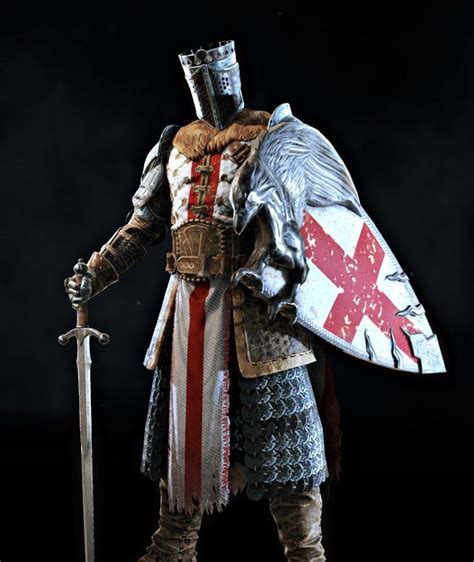Personally I’m really obsessed with the lore in Fire Emblem: Three Houses
One that just popped into my mind… The Culture Series. I really struggled to get into Consider Phlebas and must have restarted it three times before I got it. After I did, it was very difficult to not think about it all the time. I stopped when life got a bit busy so I do need to pick Excession up again, or restart since it’ll all be pretty fresh again by now.
Dune is incredibly unique. Scifi without computers and genetic magic. All politics. The books are outstanding.
Caves of Qud was my first contact with post post-apocalypse. Can’t even begin to convey how strange and magical everything feels in that universe.
MALAZAN
I’m only on the 5th book but the world building is Tolkien level of detailed. Writer Stephen Erickson is an anthropologist who brought he and his achaelogist friend Ian esselmont dnd world to written reality. Esselmont has books in the series too but not that far along yet.
It makes it difficult to pick up other books afterwards. Major caveat I didn’t know what the fuck was happening until the second book. Then it clicked.
Wonderful writer and world building.
The Expanse or First Law
LotR - it’s really fucking hard to top especially when Tolkien was pioneering the field.
I consider lore and worldbuilding to be related but different concepts. Lore is the details of your world, worldbuilding is the way you deliver those details.
My favorite example of worldbuilding is The Dark Crystal, both the film and series. The lore is standard fantasy stuff, but the intricacies of the world are so rich and they unfold so naturally. It felt like a real world, and I felt like very little of what I learned about that world was simply narrated to me. The world was built through tiny details, interactions and observations, throwaway lines of dialogue, and effectively so.
Right now I’m way down a Brandon Sanderson rabbit hole, so I guess the Cosmere? I’d say Stormlight Archive, but Mistborn is really cool because they’re set at the inflection points in the planet’s history. The first arc is excellent, and it changes the world. The second arc is set in the future, with mythologies based on the first arc and scientific progress based on secrets uncovered in the first. The changes in the use of magic are really cool. There’s a third arc planned to be set in the future from there.
But the Cosmere as a whole shares some core concepts and characters can move across it, and that comes into other standalone works like (3 of 4) secret projects and a bunch of other stuff.
I feel like Brandon Sanderson’s individual worlds lack something in worldbuilding which I can best describe as “unknown history”. it feels like he tells too much about the world he reveals which makes the world feel smaller. like if there are ruins that are part of the story you’re probably going to learn how those ruins came to be. this may be related to all the worlds being post apocalyptic and could be intentional
Agreed - Brandon may not be the best at certain facets of writing, but he’s nothing short of virtuosic when it comes to worldbuilding. The cosmere is a masterwork in this regard.
I love Brandon because he’s an absolute machine at writing. I’ve given up on too many amazing series because I just don’t believe the authors will ever finish the work. Brandon is a breath of fresh air in that regard.
That being said, he has a really specific range to his writing. Personally, I can’t binge too much on his work or I get a little bored or restive or something. Kind of like eating cereal for every meal – it’s great at breakfast, but at some point, you just need some variety.
I love his work and bought physical copies of all of Stormlight, Mistborn, and just a couple days ago the pretty “premium” hardcovers for the secret projects, just to have on my shelves.
My one thing is that his introductions are almost always slower than I’d like. Though ironically he did better in the Wax and Wayne Mistborn arc and I like the Vin arc more.
I agree. He draws out books a lot, and as much as I love his writing, it can get tiring waiting for the plot to go somewhere in mistborn
I said it elsewhere but it felt like he meant for the final empire to be standalone, then was scrambling a bit in the well of ascension to keep the plot going.
But then some of the part I thought felt slow paid off in the conclusion, so IDK. I like the pacing in most of the rest of the stuff. It’s just the introductions. Like Tress of the Emerald Sea, for example, it took so long for her to actually start her adventure.
The Foundation series by Isaac Asimov. Though, I guess what really hooked me was the idea that the future could be predicted, and guided toward an outcome that would benefit people. That, uh, doesn’t seem to fit with reality. But it sounds real nice ☹️
Vampire The Masquerade.
Hands down best depiction of vampires, and what unlife is like for a vampire.
BattleTech/mechwarrior. I think it started as a tabletop game? Lots of media came from it, and video games pop up every few years starting in 1989.
https://en.wikipedia.org/wiki/BattleTech
The series began with FASA’s debut of the board game BattleTech (originally named Battledroids) by Jordan Weisman and L. Ross Babcock III and has since grown to include numerous expansions to the original game, several board games, role playing games, video games, a collectible card game, a series of more than 100 novels, and an animated television series.[3]
The main wiki: https://www.sarna.net/wiki/
There was a so bad it’s good cartoon in the 90s: https://www.youtube.com/watch?v=PLJM4vjMdhc
Tons of novels, two modern TTRPG systems, two current tabletop miniature wargame rule sets.
A new action game: https://store.steampowered.com/app/2000890/MechWarrior_5_Clans/
A very good turn based game very closely following the tabletop rules: https://store.steampowered.com/app/637090/BATTLETECH/
A multiplayer online action game: https://mwomercs.com/
I really love Jack Vance’s world building. His Gaean Reach setting gives an endless variety of cultures, customs and beliefs. And the Dying Earth novels formed the basis for magic system of DnD.
But the real treasure is in how he can let these worlds come alive with his descriptions. Often he would spend a whole paragraph describing something that will never be part of the story but manages to perfectly set the tone of the local atmosphere.
I grew with these books (thanks to my dad’s impressive personal SF library) and they’ve always managed to spark my imagination like no other book.
Kim Stanley Robinson’s Mars series.
Just a breathtaking setting that begins with the first hundred settlers and traces the intrigue, terraforming, conflicts, and dreams of the colonists. It’s a sweeping epic written on a human scale.
Call me boring but Randland (The Wheel of Time).
I read those books over and over again just to spend more time there. I still remember more details about the cultures, cities, and fashion in those books better than I could ever remember the plot. The magic and higher moral themes were very simplistic in comparison to other books but RJ really excelled at fleshing out a continent with diverse and unique peoples that made sense in that world.
I’ve enjoyed the world building of the Warhammer 40k setting.i started out with the models in high school and moved into the books to not have to deal with sweaty, agro nerds wanting to rules lawyer the game into no fun. So many interesting stories set in the grimdark universe, and a ton of great characters to follow.
Peter F Hamilton is another good one, though his world building is rather dense. Hell tell you all about how the roads on some alien world are enzyme bonded concrete or how the magic paths traverse entire worlds and systems. Definitely not for everyone, but the audiobooks are great (John Lee has such a soothing voice) and I’ve heard them so many times they make a great media to fall asleep to when I’m traveling.
DrakeNier series: Starting by red dragon falling from sky in 2000s. Through guy in medieval, postapocalyptic 3400s trying to save his sister. Ending on androids in maid suits fighting a war against machine lifeforms and preparing Earth for return of humanity, in 11945.
Also I didn’t tell about origins of the dragon, because I haven’t played Drakengard series yet.








